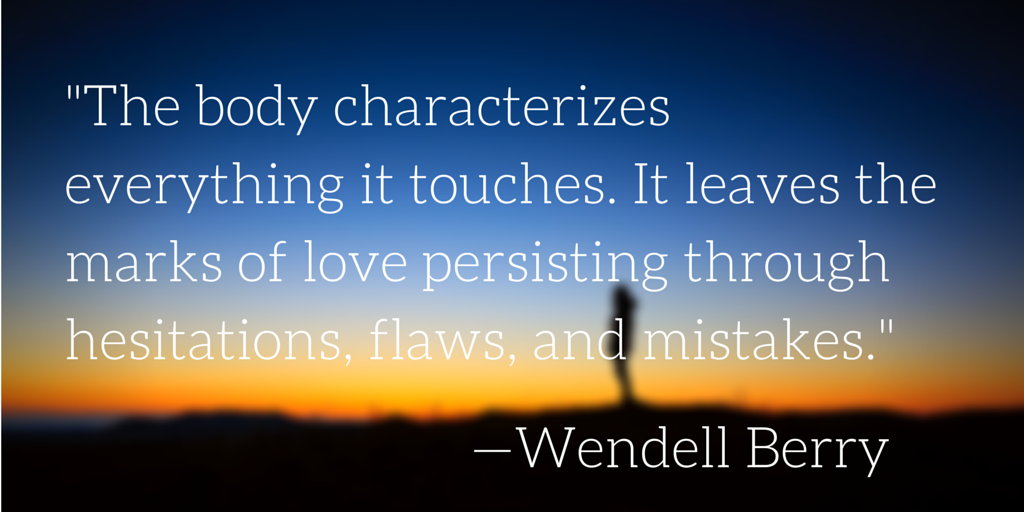“I wish I had a list of all the most perverted and private sins of the most venerated saints of church history,” my friend mused. I agreed, “Yeah, I would flip immediately to the 21st century.” To judge? No. To belay my deep seated sense of what is increasingly being called “imposter syndrome”—“ Having to live with a nagging fear of being ‘found out’ as not being as smart or talented or deserving or experienced or (fill-in-the-blank).”
To all “imposters”—the very least we can do before we judge our community, is to be honest with it. We would be remiss in our responsibility to God and ourselves if we did not at least shed some light on what we think makes us unwelcome. If there is any such trend in evangelicalism to hide sin and polish the images of Christian leaders, then the only definitive way to change that trend (if it exists) is to start practicing what we feel is lacking—whether authenticity, confession, or the space to be in process and say that which would often incur being pushed a few rungs down on the social or institutional ladder. That may be paranoia—it may be imposter syndrome, illegitimate, ungrounded, false. Let me practice honesty in the face of my own imposter syndrome by publicly naming a particularly acute sin of mine, as of late.
I’m a Jerk
I have been a jerk on social media lately. People may own up to that one perfunctory way or another—“Yeah, I was kind of a jerk.” No. I’ve been stubborn, recalcitrant, biting—with a profoundly unguarded tongue and an astonishingly guarded ego. And I’m sure some have noticed. Why? I could supply a ton of reasons—in my life, in other people, in the importance of ideas, in the fact that being kind to others on social media is not part of any job description I have. … oh right, except it is part of the human duty of the Christian life: “Be kind to one another, tenderhearted, forgiving one another, as God in Christ forgave you” (Eph. 4:32). I’m not a jerk because of things outside of me, or because of any sort of pathology. I’m just a sinful guy. But I’m more than “just a sinful guy.” That’s a cop out, too.
In the TV show Friday Night Lights, a middle-aged protagonist, Buddy Garrity—a pillar of a Texas town community—continually repeats this refrain to his kids to explain his string of adulteries: “Your dad’s a sinner. I’m a weak man.” It’s a manipulative way to trade points of reputational capital in order to gain permission to continue with an act. “Ah yes, I’m sinful now. We know this. And I may continue on with this sin.” It’s a common trope among addicts.
The gospel avoids (1) confessing sin in order to give oneself over to sinfulness, and (2) hiding sin in the hope that we will truly become the false image that we portray to others through the portrayal. The gospel brings hope in the form of both confession and change—“If we confess our sins, he is faithful and just to forgive us our sins and to cleanse us from all unrighteousness” (1 John 1:9) and “You were formerly darkness, but now you are Light in the Lord; was as children of Light” (Eph. 5:8).
I’m More than a Jerk
I want to name that in me which has nudged uncomfortably against my patient, and perhaps bruised friends who bear with me. I want to name my:
- pretense—of thinking much more highly of myself than I ought.
- being quick to speak
- failing to love others as myself
- failing to pray for others as myself
- assuming people won’t practice grace
- finding my identity in being right
- intimidating the meek
- presuming my right to speak on behalf of God to all men on all matters
- thinking much too highly of my own abilities for their own sake
- getting lost in the whirlwind of my own self-importance
- I have every reason to look at my tasks and think “I’m important. Get out of my way.” What a pathetic theology of tasks—and of divine anointing.
- sparring with others for my own vanity
Public Self-Images and the Angels
Tony Reinke recently posted this insightful quote about our culture’s working model for self-conception and self-image:
When we watch TV sitcoms, we learn the witty put-down and hear incessant cues to laugh or cheer. Commercials pair images with reputations: people at bars and beaches in beer ads are fun and laughing and beautiful, neat-and-organized mothers have spic-and-span kitchens and perfectly pressed clothing, rough-and-tough males drive rugged pickup trucks, business executives get reports and dictate orders while walking briskly to their next meeting, working women look harried but attractive in heels and tight-fitting suits. Whether we like it or not, they also teach us, by contrast, that when we fail to mimic these images, our painfully awkward self-display will earn us shame and cut us off from others’ esteem and approval (like Seinfeld’s George, who will never, ever get a decent date). These images shape our self-image and the image we want to project to others.[1]
This is in stark contrast to the angels of the Old Testament, who carried a message “not their own but YHWH’s . . . [to] be taken with appropriate seriousness.” Walter Brueggemmann comments, “Because the message is from YHWH, the accent is characteristically upon what is said and heard, much more than on the messenger’s appearance or significance.”[2] How many twitter followers would an angel have? … Seriously. When one is defined by the message, how does one live in the public—alongside and with others? What value judgments do we make? Certainly not the kind that allow us to fail in being holy, as God is holy—or, more than that, to communicate the holiness of God through our conduct. My twitter activity has not passed this test. My twitter activity needs the gospel.
We can always justify sin with a million justifications. But that’s not the point—in fact, it was never the point. The point is “faith working through love” (Gal. 5:6). Lord, have mercy on us, sinners—on me, a sinner. Be patient with me and work in me as I learn what it means to live life alongside your angels—messengers, pointing to you, faithfully communicating who you are in word, deed, and character. Grant me the grace to do the same, in spite of what is most basically a sinful and vainglorious nudging-against my neighbor. Thank you for such patient and loving neighbors. Make me like Christ—like them.
[1] Rebecca Konyndyk DeYoung, Vainglory: The Forgotten Vice (Grand Rapids, MI: Eerdmans, 2014), 117.
[2] Walter Brueggemann, Reverberations of Faith: A Theological Handbook of Old Testament Themes (Louisville, KY: Westminster John Knox Press, 2002), 5.











